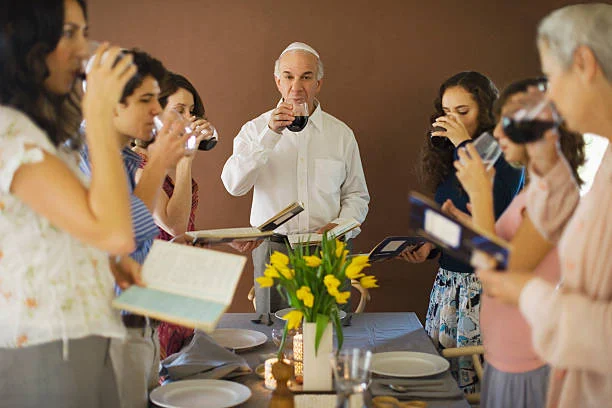Last Day of Passover | History, how to celebrate
Last Day of Passover
The Jewish holiday known as "Acharon Shel Pesach" in Hebrew, marks the end of the seven-day Passover festival. In the Hebrew calendar, this day falls on the 21st day of the month of Nissan and holds immense historical significance in Jewish history. According to tradition, it was the day when the Israelites finally gained freedom from slavery in Egypt after crossing the Red Sea. To commemorate this event, Jews read the "Song of the Sea" from the book of Exodus and offer special prayers.
Apart from its historical importance, the last day of Passover is also regarded as a time for spiritual renewal and introspection. Many people use this occasion to engage in charitable deeds, show kindness to others and reflect upon the lessons of the holiday.
Overall, the last day of Passover is a significant day in the Jewish calendar, marking the end of a week-long celebration that emphasizes the values of freedom, redemption, and renewal.
History of Last Day of Passover
The last day of Passover, referred to as "Acharon Shel Pesach" in Hebrew, is a significant Jewish festival that marks the Israelites' crossing of the Red Sea and their emancipation from slavery in Egypt. Typically observed on the 21st day of Nisan, the Hebrew month, which falls in April, the roots of this day can be traced back to the time of Exodus, estimated to have taken place approximately in 1300 BCE.

History of Last Day of Passover(Getty)
The Bible narrates that the Israelites were subjugated in Egypt for over four centuries until Moses, with the guidance of God, led them to freedom and towards the Promised Land. During their exodus, the Israelites encountered the Red Sea with Pharaoh's army pursuing them. Moses used his staff, causing the waters to part, enabling the Israelites to cross safely. However, as the Egyptians attempted to follow, the sea engulfed them, drowning Pharaoh's army.
The last day of Passover is observed with unique prayers and rituals to commemorate this extraordinary event. People recite the Hallel prayer, a collection of psalms of thanksgiving and praise, and relish a festive meal. Some Jewish communities follow the Moshiach's Seudah, which is a distinctive meal eaten to honor the future Messianic redemption.
In contemporary times, the last day of Passover continues to hold immense significance in the Jewish calendar and is celebrated by Jewish communities worldwide.
How to celebrate Last Day of Passover
The final day of Passover, also known as "Yom Tov" or "Yom Tov Sheini Shel Galuyot" in Hebrew, signifies the conclusion of the week-long Passover festival celebrated by Jews worldwide. Here are some ways to commemorate the Last Day of Passover:
Attend Synagogue: Many synagogues hold special services on this day with a focus on redemption and the conclusion of the holiday.
Have a Festive Meal: The Last Day of Passover is an ideal occasion to gather with family and friends for a celebratory meal, including traditional Passover dishes like matzo, brisket, and gefilte fish.
Observe the Havdalah Ceremony: Mark the end of the holiday and the beginning of a new week with the Havdalah ceremony, using a candle, wine, and spices.
Reflect on Passover's Meaning: Take some time to contemplate the significance of Passover and the lessons learned during the festival. Consider how these teachings can be applied to daily life.
Donate to Charity: The Last Day of Passover is an opportunity to give back to the community and help those in need. Consider volunteering or donating to a Jewish charity.
In conclusion, the Last Day of Passover is a time to appreciate the conclusion of the holiday and reflect on its significance. Whether attending synagogue, sharing a festive meal, performing the Havdalah ceremony, donating to charity, or spending time with loved ones, it is an opportunity to cherish life's blessings.






